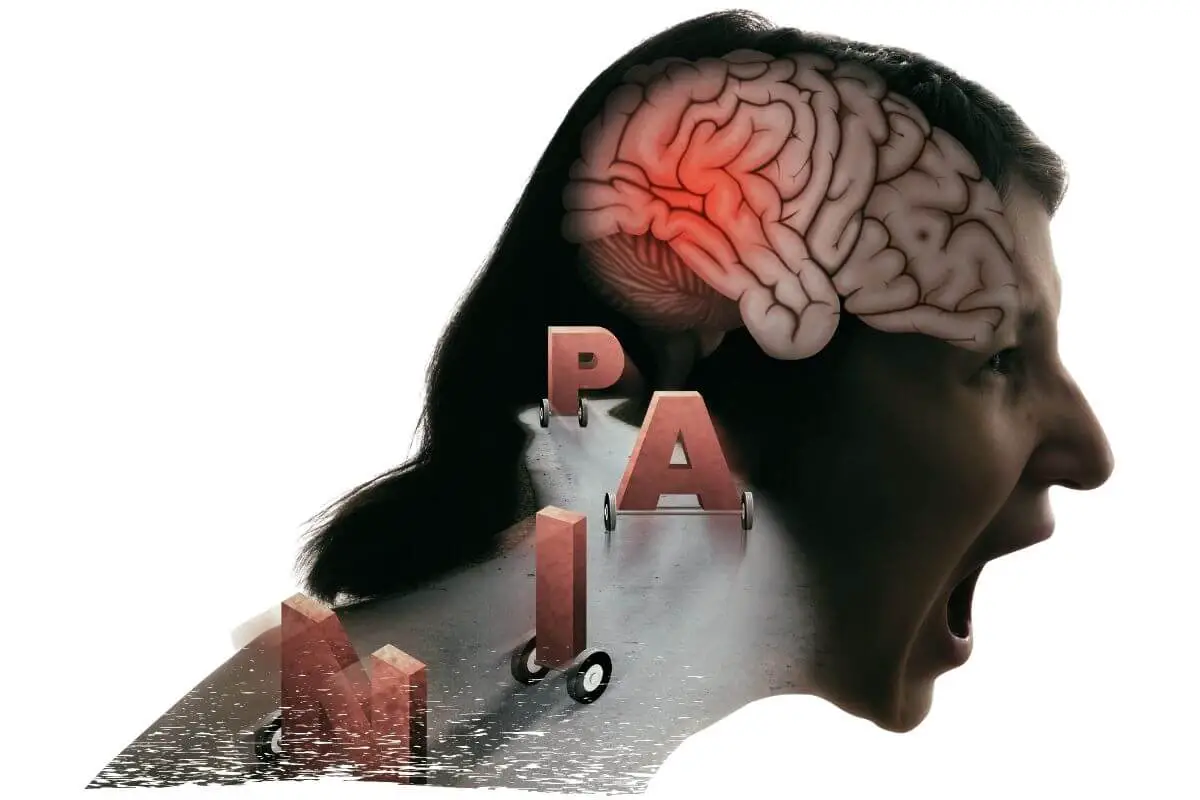The mental impact of chronic conditions!
Anxiety and depression…
Anxiety and worry often accompany endometriosis and fibromyalgia. Both conditions create a loss of control over your partner’s body and over her ability to plan and predict.
It also brings uncertainty about the future. Your partner becomes unclear about her prognosis and wonders whether she’ll improve things.
She may worry about how far down her life might slide and about becoming dependent on you feeling like a burden.
Depression usually accompanies your partner’s anxiety. The sense of loss of her life can hit really hard. Women with endometriosis, fibromyalgia, and chronic fatigue syndrome have an understanding of their pain, both – physical and emotional.
However, when your partner hears that there is no hope, no treatment, and no cure over and over, she loses her will to fight. It often leads to suicidal thoughts…
I want you to take this extremely seriously – your partner hides her feelings. You may not notice anything because she doesn’t want to be a burden to you.
But hiding her emotions build and there will be a time when she might find it hard enough to think of suicide.

Here’s what you can do if you see warning signs:
- Be direct. Talk openly and make her realize that you take suicidal thoughts seriously. It’s okay to ask how can you help. Don’t worry about r reaction – if she has thoughts of suicide, she’ll be relieved and grateful that you are willing to be open nonjudgmental. Show her that you care and take her seriously.
- Don’t judge! Listen but allow her to express her feelings, and accept them, no matter how harsh and scary they may sound. Your partner needs to be reassured that you’ve got her back, that there is hope, and that her suicidal thougts are temporary. Don’t make any permanent decisions for temporary emotions.
- Take it seriously. Always take thoughts of suicide seriously. If she admits to thinking about it, question things further and ask if she has a plan, or does she know how or when would she do it. If you feel she’s in danger, you must make sure that she is not alone, and call an ambulance immediately!
- Offer support. If you feel that your partner isn’t in immediate danger, you can say things like, “I can tell you’re really hurting” and “I care about you and will do my best to help you”. Also follow through with a doctor or even better – a mental health professional.
- Don’t be afraid to ask for help! Seek support from individuals or agencies specializing in crisis intervention and suicide prevention.

